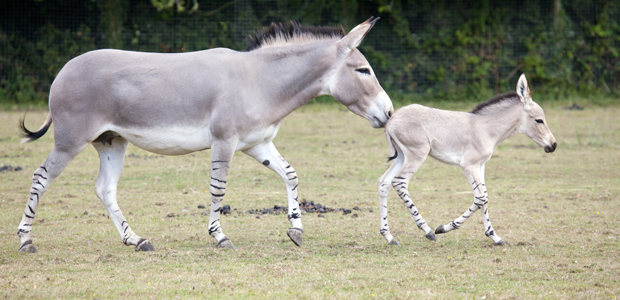Advertisement
Wildlife Wednesday: African Wild Ass
This unfortunately named species may be the butt of a few jokes, but the African wild ass is a noble predecessor to our domestic donkey. For today’s Wildlife Wednesday, learn why this animal’s numbers in the wild have been on a downward spiral since their domestication 6,000 years ago. Habitat: some grassy desert regions of … Continued

This unfortunately named species may be the butt of a few jokes, but the African wild ass is a noble predecessor to our domestic donkey. For today’s Wildlife Wednesday, learn why this animal’s numbers in the wild have been on a downward spiral since their domestication 6,000 years ago.
Habitat: some grassy desert regions of northern Africa, including Eritrea, Ethiopia, and Somalia
Trivia
- African wild asses can comfortably lose up to 30 percent of their body weight via water before rehydrating. Humans are feeble by comparison: for us, dehydration can become fatal when we lose water equal to 9 percent of our body weight.
- Although their typical lifespan is around 25 to 30 years, some African wild asses have been known to live for up to 40 years in captivity.
- They’re capable of running as fast as 50 km per hour.
- Along with horses and zebras, asses belong to a group collectively known as equids.
- Like many desert dwellers, African wild asses are most active in the early morning or late afternoon, and prefer to spend their days dozing in the shade.
Why they’re threatened
Fewer than 600 African wild asses remain in the wild. Three main threats have led to this creature’s critically endangered status.
- hunting by locals, possibly out of the belief that the animals’ body parts can cure diseases
- interbreeding with domestic donkeys
- competition with livestock for grazing room
Civil disputes in Ethiopia and Somalia haven’t helped matters, with the increase in firearms leading to more hunting.
Fortunately, African wild asses have been doing pretty well in captivity. A record number of Somali wild asses were recently born at the Saint Louis Zoo; one proud papa named Abai fathered five foals that look equal parts awkward and adorable.





